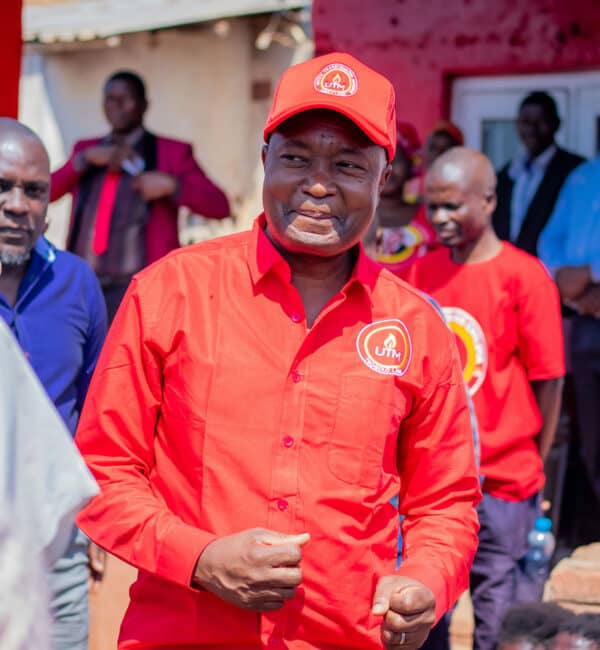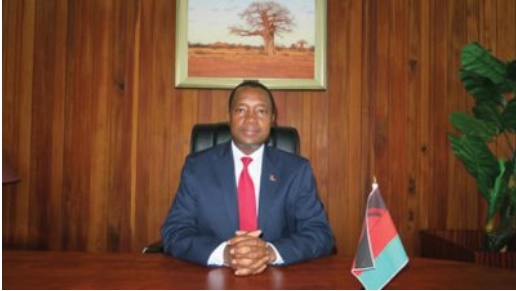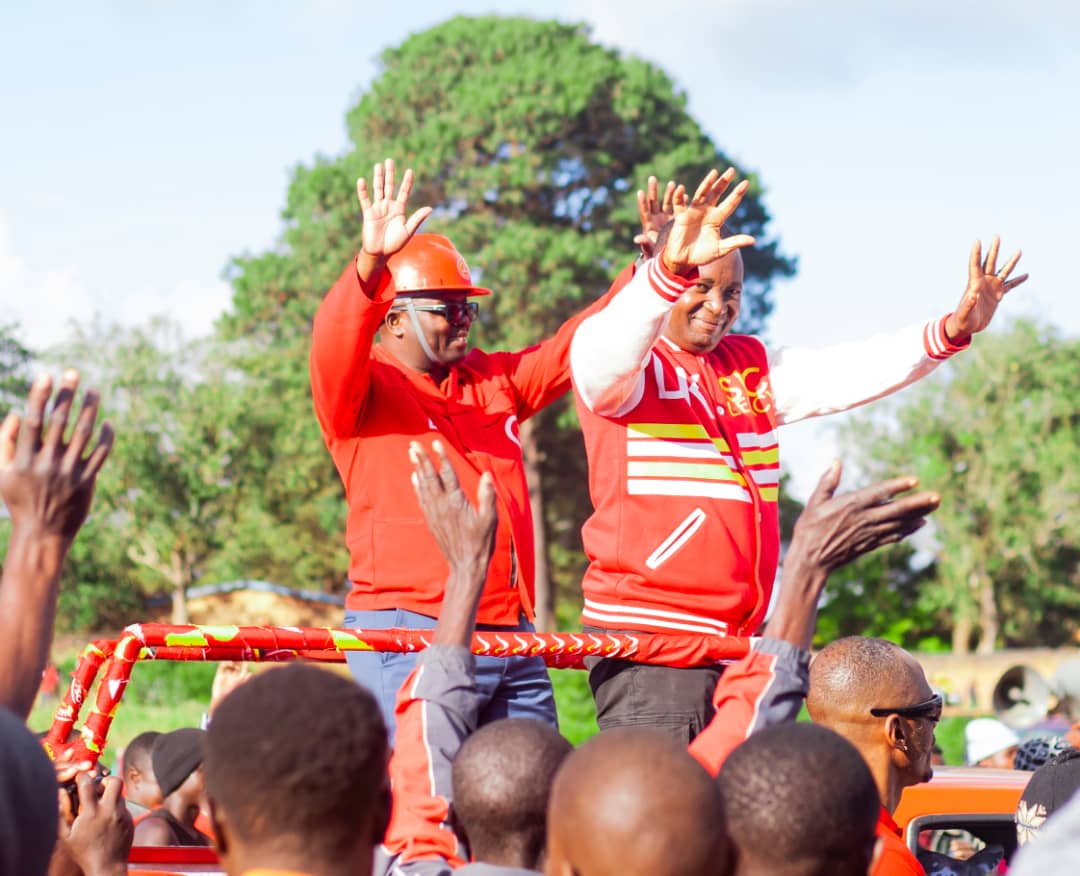Malawi’s Dangerous Gamble: The Two Faces of Dr. Dalitso Kabambe
Malawi votes on 16th September 2025 while spiraling deeper into an economic abyss, its people are confronted with a complex political choice. Malawi is on her knees, battered by unsustainable debt, crippling foreign exchange shortages, daily essential commodities price rises, rampant food insecurity, and an inflation rate that devours the livelihoods of its poorest citizens. It is a moment of profound desperation.
And into this void steps Dr. Dalitso Kabambe, the presidential candidate for the United Transformation Movement (UTM) party, a man who presents himself as the nation’s technocratic saviour.
Dr. Kabambe is, on paper, is the most qualified economic manager to ever seek the Malawian presidency – a development economist with a genuine PhD earned from Imperial College London, he boasts a two-decade career at the highest levels of the state’s financial machinery, including the critical role of Budget Director. Yet, this same man stands accused in a court of law of abuse of office and money laundering, his name at the center of a forensic audit that alleges a breathtaking disregard for the very rules he was meant to uphold.

His candidacy, therefore, is not merely a political contest; it is a national wager of the highest order. It forces Malawians to ask a deeply uncomfortable question: In a time of existential crisis, should the promise of unparalleled competence outweigh the stain of profound ethical compromise? The answer will define the country’s soul and its trajectory for a generation.
The Promise of the Manager
The case for a Kabambe presidency is built on a simple, powerful narrative: he has fixed it before, and he can fix it again. His supporters point to his three-year tenure as Governor of the Reserve Bank of Malawi (RBM) from 2017 to 2020 as proof of concept. It is a record they brandish with justifiable pride.
Under his stewardship, Malawi achieved a period of rare macroeconomic stability. He is credited with wrestling inflation down from a staggering 28% to single digits, a feat of immense significance in a country where price volatility has long been a primary driver of poverty. The Malawian kwacha, often prone to wild fluctuations, was held remarkably stable, and the nation’s foreign exchange reserves were bolstered to cover three to six months of imports. Data from the period largely substantiates these claims, showing average annual inflation remaining in single digits from 2018 to 2020 and a stable exchange rate.
He claims that under his watch, private sector lending, which had been contracting, turned positive, signaling renewed economic confidence. He presents himself as the “technocrat turning into a politician,” an expert who understands the system’s levers and is now stepping into the political arena out of a sense of duty to pull them correctly. His detailed “7-point recovery plan,” which includes radical decentralization and a focus on diversifying the economy away from its over-reliance on agriculture, speaks directly to the nation’s structural ailments. For a populace weary of economic pain, this message of competence and clear-eyed planning is understandably seductive.
The Shadow of the Audit
But for every bright data point in Dr. Kabambe’s narrative of success, there is a dark and deeply troubling counterpoint. This counter-narrative is not based on political rumour, but on the meticulous findings of a forensic audit conducted by the reputable international firm, Deloitte, covering the latter half of his governorship. The audit report, which forms the basis of the ongoing criminal prosecution against him, paints a picture of a central bank where rules were allegedly bent, and public funds were moved in highly suspicious ways.
The allegations are as specific as they are severe. The audit details how the RBM under his leadership allegedly channeled a disproportionate $769 million in market intervention funds through a favored commercial bank. It questions billions of kwacha in suspicious payments, including a K4.3 billion transaction processed at 1 a.m. on the very day a change in government was being declared. It alleges that lucrative IT contracts worth over K1.7 billion were awarded to a single supplier, Mitra, in violation of the bank’s own policies, and that K2.8 billion was paid to law firms from miscellaneous accounts with no supporting documents.

Most damningly, the audit supports the allegation that led to his arrest: that the RBM deliberately falsified financial data to mislead the International Monetary Fund (IMF) into believing Malawi was meeting its performance benchmarks. This alleged deception, prosecutors claim, led the IMF to suspend its facility, causing direct and catastrophic harm to the Malawian economy.
While Dr. Kabambe and his supporters dismiss these charges as a politically motivated witch-hunt, the sheer detail of the audit makes it impossible to ignore. These are not vague smears. They are specific transactions, dates, and institutional failures that demand a factual, legal exoneration, not just a political denial. For a man who wants to be president, the inability to clear his name from such grave and specific allegations represents an enormous and enduring liability.
The Irony of the Anti-Corruption Crusader
What elevates this story from a standard political drama to a tragedy of national proportions is the jarring hypocrisy at its heart. In July 2017, shortly after taking office, Governor Kabambe stood before the nation and declared a “total war on corruption”. He lamented the “Cashgate” scandal as a national tragedy and positioned the RBM as a key institution in the fight against graft. He launched the “RBM Tip-Offs Anonymous” program, a whistleblower hotline to be managed, ironically, in partnership with Deloitte, the very firm whose audit would later implicate his tenure. “No public money under any circumstances,” he vowed, would “be pilfered through theft”.
To juxtapose these noble words with the findings of the forensic audit is to witness a chasm between rhetoric and alleged reality so wide it defies belief. We are asked to accept one of two possibilities: either Dr. Kabambe was a catastrophically inept leader, completely oblivious to the rampant rule-bending and suspicious transactions happening under his nose; or his public pronouncements on fighting corruption were a cynical and deliberate smokescreen. Neither conclusion recommends him for the highest office in the land.
A Nation’s Desperate Gamble
A candidate as compromised as Dr. Kabambe should, in a healthy democracy, be a fringe figure. The fact that he is a leading contender is a grim testament to the depth of Malawi’s crisis. With per capita income contracting for a fourth consecutive year, with over 70% of the population living in poverty, and with the nation facing acute food and fuel shortages, the electorate is desperate.
This desperation makes voters vulnerable to the “strongman” appeal of a technocrat who promises, above all else, to make the economy work again. The complex details of a forensic audit may seem abstract and distant compared to the immediate, gnawing pain of hunger and the inability to afford basic necessities. Dr. Kabambe’s campaign is a direct appeal to this pain. He is betting that voters will prioritize the promise of economic competence over the demand for unimpeachable integrity. He is gambling that in a house on fire, the occupants will not question the character of the firefighter who arrives with the hose.
This is the dangerous gamble that now confronts Malawi. To elect Dr. Kabambe would be to hope that his technocratic brilliance is genuine and that, once in power, he would use it for the national good. It is to believe that a man accused of gaming the system is the only one who can fix it.
The risks, however, are monumental. A Kabambe presidency would be born with a fatal trust deficit. How could he lead a credible war on corruption while his own past remains under a legal cloud? How could he restore faith with the IMF and other international partners when he stands accused of deceiving them? A nation in debt distress, desperately in need of international goodwill, can ill-afford a leader whose very name could jeopardize those relationships. 
The choice before Malawi is stark. It is not a simple choice between good and bad, but a complex calculation of risk. Is the risk of continued economic decay under the current political class greater than the risk of installing a brilliant but deeply flawed leader who could be either the nation’s saviour or the agent of its final undoing? Dr. Kabambe’s candidacy holds up a mirror to Malawi, forcing a long, hard look at what it has become and what it is willing to sacrifice for a chance at salvation.
Follow and Subscribe Nyasa TV :


IMF is watching